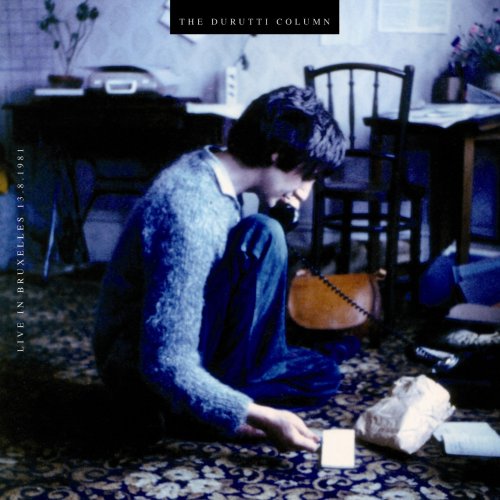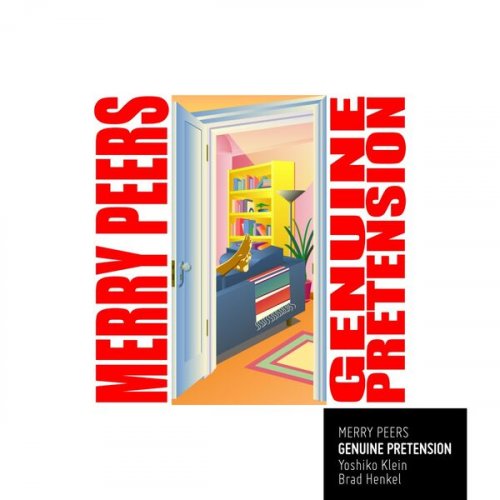The Durutti Column - Live In Bruxelles 13.8.1981 (2008)

Artist: The Durutti Column
Title: Live In Bruxelles 13.8.1981
Year Of Release: 2008
Label: LTM Recordings
Genre: Post-Rock, Post-Punk, New Wave, Rock
Quality: FLAC (tracks) / MP3 320 Kbps
Total Time: 54:17
Total Size: 279 / 138 mb
WebSite: Album Preview
Tracklist: Title: Live In Bruxelles 13.8.1981
Year Of Release: 2008
Label: LTM Recordings
Genre: Post-Rock, Post-Punk, New Wave, Rock
Quality: FLAC (tracks) / MP3 320 Kbps
Total Time: 54:17
Total Size: 279 / 138 mb
WebSite: Album Preview
1. Sketch For Dawn 5:09
2. Messidor 2:29
3. Jacqueline 3:53
4. Conduct 2:38
5. Sketch For Summer 2:14
6. Danny 3:23
7. Stains (Useless Body) 3:10
8. The Missing Boy 8:01
9. Self Portrait (Version) 5:44
10. For Belgian Friends 2:06
11. Interview 15:30
Part of LTM's early-2008 reissue series of a slew of Durutti Column releases that had originally appeared on Crepuscule, Live in Bruxelles was the sole "new" release, though as the title indicates it's actually an archival tape seeing official light for the first time. Taken from a radio soundboard recording done for broadcast, the set is a mix of tracks from The Return of the Durutti Column, the then-unreleased LC, and various singles and one-offs, including the highly obscure, somewhat unsettling physicality-of-romance portrait "Stains (Useless Body)." Compared to the almost preternaturally clean atmospheres of the studio recordings at the time, Live in Bruxelles is rougher around the edges, not just simply because of the recording quality (fair but not pristine) and the mix, which often foregrounds Bruce Mitchell's drums. It's hearing those drums that gives the disc part of its impact, though -- having just recently begun to work with Vini Reilly, you get a sense that he's still testing out the feeling of the partnership to the full, and moments like the breakdown toward the end of "Sketch for Dawn" and the various mini-solos throughout "Jacqueline" show both what a remarkable drummer he is and how well he slotted in with Reilly's own muse. Reilly himself shines as expected; while his singing is much more direct and sharp given the mix, as can especially be heard on a stellar take on "The Missing Boy," as ever it's still a voice notable more for absence rather than presence, translating most of his feelings into his trademark fluid guitar runs and deceptively calm melodies. (There's one notable exception to this via some crazy soloing on "Self Portrait," which almost comes out of nowhere.) An enjoyable bonus appears at the end with the inclusion of an interview done just after the performance, where Reilly thoughtfully answers various, if sometimes muffled, questions about his work, including some thoughts on the balance between experimentalism and accessibility he found himself aiming for (which in many ways remains true through the present day), as well as a calmly stated but fierce denunciation of the venue's PA system he's just performed with.


![Bobby Meckam - Trumpet and Jazz in Strings (1981/2025) [Hi-Res] Bobby Meckam - Trumpet and Jazz in Strings (1981/2025) [Hi-Res]](https://www.dibpic.com/uploads/posts/2025-12/1766062047_cover.jpg)

![Tomasz Stanko - Unit (Polish Radio Sessions vol. 2/6) (2025) [Hi-Res] Tomasz Stanko - Unit (Polish Radio Sessions vol. 2/6) (2025) [Hi-Res]](https://www.dibpic.com/uploads/posts/2025-12/1765796826_cover.jpg)
![Rachel Kitchlew, SFJ - Flirty Ghost (2025) [Hi-Res] Rachel Kitchlew, SFJ - Flirty Ghost (2025) [Hi-Res]](https://www.dibpic.com/uploads/posts/2025-12/1765896408_qvf41hr1ljj8a_600.jpg)

![Nectar Woode - Live at Village Underground (Live At Village Underground) (2025) [Hi-Res] Nectar Woode - Live at Village Underground (Live At Village Underground) (2025) [Hi-Res]](https://img.israbox.com/img/2025-12/15/eiazyx7yigt2lhbv1tcd3eos6.jpg)
